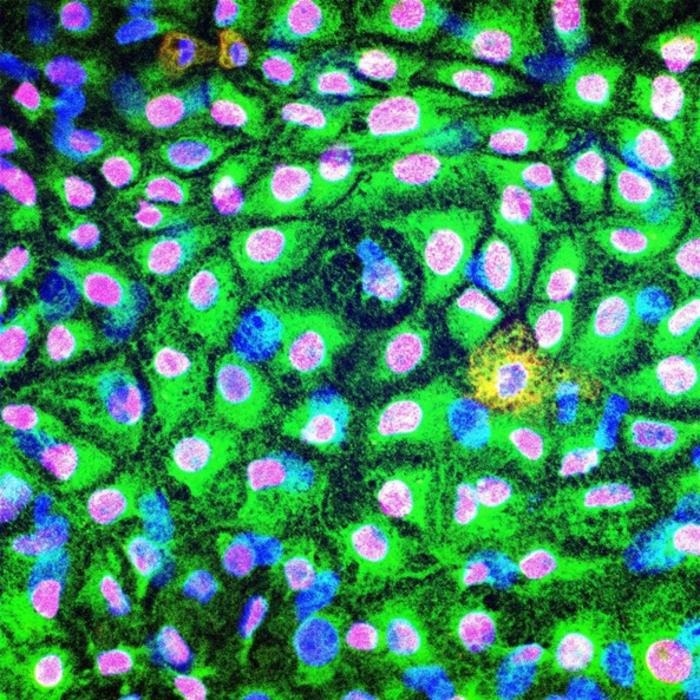Cell and organ transplants have the potential to save lives; however, patients frequently face prolonged waiting periods as a result of the insufficient availability of suitable donors.
 Researchers from the Chinese Academy of Sciences, Beijing, have genetically engineered stem cells so that liver cells obtained from them would be invisible to the immune system. Image Credit: Mengqi Li.
Researchers from the Chinese Academy of Sciences, Beijing, have genetically engineered stem cells so that liver cells obtained from them would be invisible to the immune system. Image Credit: Mengqi Li.
In 2021, donatelife.net reported that 6,000 individuals in the US lost their lives while awaiting a transplant, highlighting the critical shortage of organ donors. The future of transplantation may see a transformation with stem cell-generated transplants, offering hope to a broader patient population.
A significant hurdle in organ and cell donation, whether from deceased or living donors, lies in immune rejection. Without precise matching to the recipient's immune system, transplants are at risk of rejection. However, ongoing stem cell research aims to address this challenge.
Researchers are actively developing hypoimmunogenic stem cells, genetically modifying them and their derived tissues to evade recognition by the immune system. This advancement could lead to transplants derived from a universal stem cell stock, eliminating the need for immune matching.
While the potential benefits are promising, a concern arises regarding uncontrolled growth and tumor formation from residual immature cells within the transplant. To tackle this issue, scientists, including Baoyang Hu and colleagues from the Chinese Academy of Sciences in Beijing, have engineered stem cells to make liver cells invisible to the immune system.
This innovative approach involves the production of two immunosuppressive proteins by mature liver cells, offering protection against immune attacks. Simultaneously, immature stem cells lack these proteins, rendering them susceptible to destruction by the immune system.
In experiments involving mice with human immune systems, this method successfully inhibited tumor formation and ensured the survival of stem cell-derived liver cells, even without precise immune matching.
This breakthrough could potentially extend to safeguarding other stem cell-derived tissues, such as heart or pancreatic cells, from immune rejection.
The study findings, published in Stem Cell Reports, mark a significant step forward, but the safety and efficacy of these stem cell-derived transplants must undergo further validation in pre-clinical and clinical studies.
Source:
Journal reference:
Zhu, W., et al. (2023) Induction of local immunosuppression in allogeneic cell transplantation by cell-type-specific expression of PD-L1 and CTLA4Ig. Stem Cell Reports. doi.org/10.1016/j.stemcr.2023.10.016.